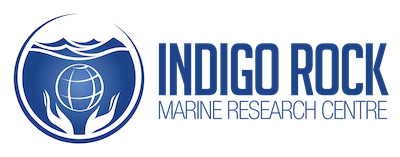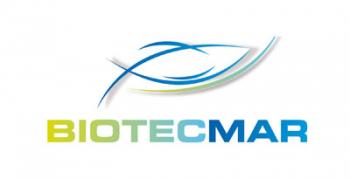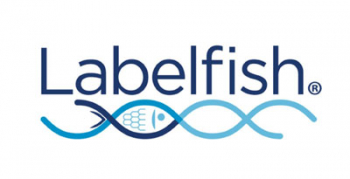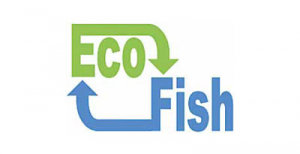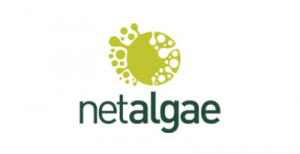
Past (4)
BIOTECMAR : BIOTEChnological exploitation of MARine products and by-products
Super UserBIOTECMAR
BIOTEChnological exploitation of MARine products and by-products
INTRODUCTION
Marine biological resources such as seaweeds, fish and shellfish products, by-products and extracts are sources of valuable ingredients and bioactive molecules. Marine resources from fisheries, aquaculture and seaweed harvesting sectors generate important direct and indirect economic activities. These sectors produce a large amount of waste and by-products, which should be considered as raw materials for the production of valuable ingredients for food, animal and human nutrition, cosmetics and health. The main objective of Biotecmar is to set up and incorporate a fully integrated chain for the production of value added compounds derived from the Atlantic Marine resources. Biotecmar's overall aim is to help the companies of the Atlantic Area (which are mainly SMEs) to take advantage of the use of modern biotechnological tools and contribute to a diversification of the activities derived from marine biomass exploitation within the strict framework of sustainable management of marine natural sources.
THE MAIN RESOURCE CHAIN
- Fisheries, aquaculture, seaweed harvesting and seafood processing as source of raw material.
- Fish waste conservation, collection and transport and processing.
- Production and commercialization of bioactive compounds and/or ingredients derived from processing to be used for the food, feed, nutrients, cosmetics and therapeutic industries.
- Develop and transfer R&D in marine biotechnology.

A 3 YEARS ACTION PLAN (2009-2011)
- Identification and quantification of marine by-products (volume, quality)
- Training sessions, practical workshops, matchmaking events: legislation, traceability, by-products conservation, biotechnological and transformation processes.
- Database of marine stakeholders.
- Offers/demands of by-products.
- Cooperation between labs and SMEs /industrials.
- SMEs support for launching innovative projects.
LABELFISH
Regions of the Atlantic area are characterised by an intense economic and social relationship with marine resources. Most of them are linked with important fishery and aquaculture industries.
For these regions, seafood traceability and labelling are essential, as their products may be under threat from low-cost, third country imports. Imports which could potentially be of doubtful origin and/or which may have been handled or produced under inadequate controls.
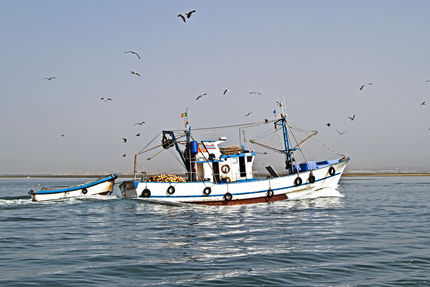 The main objective of LABELFISH is to set up a network of entities interested in developing a common traceability strategy, using standardised and innovative analytical techniques of genetic traceability and labelling of seafood products in the European Atlantic areas. Under this general objective are specific objectives:
The main objective of LABELFISH is to set up a network of entities interested in developing a common traceability strategy, using standardised and innovative analytical techniques of genetic traceability and labelling of seafood products in the European Atlantic areas. Under this general objective are specific objectives:
- Analysis of fish traceability and fish labelling in markets of the Atlantic Region. This objective involves the analysis of the implementation of traceability schemes in the seafood industry (fishing fleets, fishing industry and auctions), studies of the state of seafood labelling at auctions and markets, the perception of consumers of seafood traceability and labelling, and the analysis of the effectiveness of the control of labelling by competent authorities. The seafood labelling studies will focus on the most commercially important species in Atlantic area, specifically in the countries involved in the project. Some of these species are cod, tuna, anchovies, ling, sole, monkfish, haddock and hake.
- Standardisation of fish authenticity and genetic traceability methodologies. This objective aims to compare the current techniques used for fish species authentication and control of traceability, and to build a genetic database that will allow harmonisation and standardisation of methodologies at the European level.
- Atlantic network for species authenticity and labelling. We aim to establish a network of laboratories, entities, companies with expertise and capacities in fish traceability, seafood labelling and fish authenticity. This network will interact by holding workshops for exchanging of methodologies, personnel and results. The final objective is to create a framework for the creation of a European network for fish authenticity and control of traceability.
Protection of European consumers and SMEs will be achieved by ensuring consumers’ rights to correct product information and by implementing reliable genetic traceability and authentication tools for the protection of market niches.
Website: labelfish.eu
ECOFISH
Environmentally Friendly Fish Farming and use of Cleaner Fish
The objective of the project was to minimise the environmental impact of salmonid and gadoid aquaculture using hatchery produced cleaner fish to remove parasitic sea lice thereby reducing the use of therapeutic treatments.
As well as having an environmental benefit, the use of wrasse should allay concerns from increasingly knowledgeable consumers and retailers who demand that the food they eat should be produced sustainably and without unnecessary treatments. Indeed, these concerns have led to a rapid increase in demand for organically produced food. By removing the need to use chemicals to remove lice, the project brought benefits to the farmers, via reduced losses due to sea lice related problems, but also allowed them to exploit the lucrative organic market and give their products a marketing advantage. The project delivered the methods and technology to produce cleaner fish for use by the cod and salmon farming industry in all the partner countries. The physical outcome of the project was a substantial number of wrasse for field application for proving the technique on fish farms in partner countries. Dedicated wrasse production hatcheries were established in Ireland, Norway and in Scotland where they developed successful rearing techniques and production methods through close collaboration and exchange of information amongst the partners, their associates, the aquaculture industry, governments and regulators.
| Duration | 2008 - 2011 |
|---|---|
| Funding Body | INTERREG Northern Periphery Programme |
| Project Costs | €1,594,966 |
| Project Co-ordinator | Bodø University College, Norway |
| Number of Partners | 5 |
| Website | http://www.eco-fish.org/ |
NETALGAE PROJECT & NETWORK
Introduction
The European macroalgae industry is based on the harvesting of natural resources of macroalgae. Worldwide macroalgae production (includes brown, red and green seaweeds) increases 5.7 % every year, in 2008 nearly 14 mill tons of macroalgae was produced from capture and aquaculture. In Europe the production has been stable since 1960, but has decreased in the last 10 years. The further expansion of the industry depends on a stable access to raw material, development of valuable products and the transfer of expertise between developed and less developed regions.
Aims
Therefore, the project NETALGAE aims to create a European network of relevant stakeholders within the marine macroalgae sector. Compilation of information from different regions will result in a wide ranging policy study of existing practice within the macroalgae industry. Analysis of the results will establish a best practice model and suggest policies for the successful, sustainable commercial utilization of marine macroalgae resources.
Objectives
The study of national and regional development policies and regulatory environments will identify and promote an existing development and regulatory model, or lead to development of a best practice model. The network is expected to make progress towards developing industrial, commercial and scientific links and foster a culture of trade and cooperation between the memberships, and will include primary producers, processors, technology suppliers, process consultants, research institutes, development agencies, local governments and relevant community groups and other stakeholders. A European macroalgae congress will bring together industry, policy makers, environmentalists, and regulators with a view to developing a sustainable industrial macroalgae sector across the Atlantic seaboard.
Actions
- General baseline study of all national algae industries across the project area.
- Assessment of algae regulation, administration and management systems.
- Development of best practice guidelines for management and sustainability of algae resources.
- Development of a European algal industry database.
- Creation of a European-wide algae industry portal and business tools.
Website: http://www.netalgae.eu
Partners
- Indigo Rock Marine Research
- Bord Iascaigh Mhara
- Syndicat Mixte Pour l'Equipement du Littoral
- Fisheries and aquatic sciences center - AGROCAMPUS OUEST
- Universite de Bretagne Occidentale
- BIOFORSK - Norwegian Institute for Agriculture and Environment Research
- Universidadé do Algarve
- Viking Fish Farms, Ardtoe Marine Laboratory
- Mutrikuko Institutua
- Ikaslan Gipuzkoa
Co-financed with the support of the:
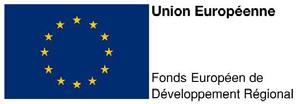
European Union ERDF Atlantic Area Programme

INVESTING IN OUR COMMON FUTURE
